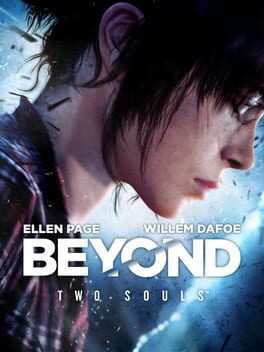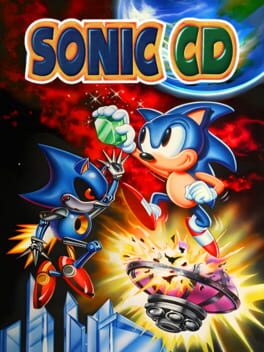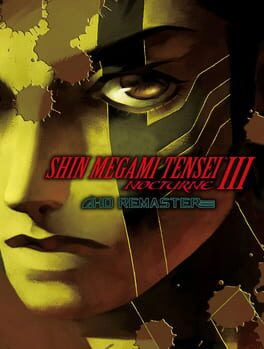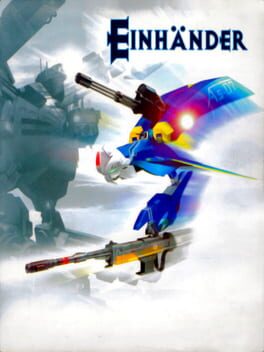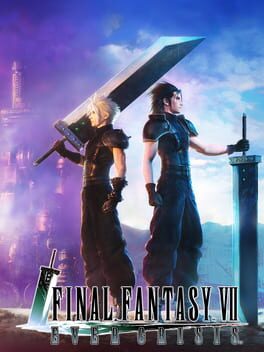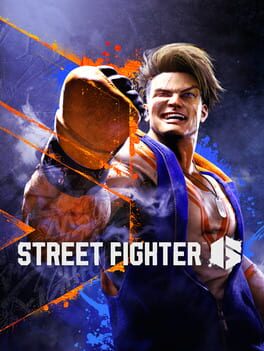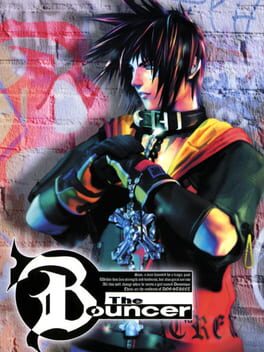LidlMan0679
80 Reviews liked by LidlMan0679
Beyond: Two Souls
2013
Talking flowers, really?
This series has been around for god knows how long and the kids who grew up with the original game on the NES are old enough now to collect social security. So why does the series continue to go for the kiddie audience instead of appealing to his actual fans, the adults? Think of how awesome a Mario game where he swears and uses mushrooms like drugs would be. Such a shame that the lazy devs don’t understand what the real fans want.
This series has been around for god knows how long and the kids who grew up with the original game on the NES are old enough now to collect social security. So why does the series continue to go for the kiddie audience instead of appealing to his actual fans, the adults? Think of how awesome a Mario game where he swears and uses mushrooms like drugs would be. Such a shame that the lazy devs don’t understand what the real fans want.
Sonic CD
1993
After drudging through Sonic’s latest adventure through mediocrity, I felt thoroughly deflated. In all honesty, I was starting to think I was just completely tapped out for this series and it would never give me the same highs it used to. As it turns out, all I needed was a brief refresher with a personal favorite of mine. It’s been a while since this series provided me any pleasure, but boy lemme tell ya, when Sonic hits it really hits.
For many, the predictable choice here would be Mania or 3&K, but despite their obviously quality, it wasn’t the skew of Sonic I was looking for today. Not even Sonic 2, a game I’ve loved for longer than I’ve had cogent memories, would scratch the particular itch I was looking for. Instead I reached for Sonic CD, a game that continues to stand tall as a singular pillar of excellence in this ridiculously far reaching series of games.
If you’ve known me online for the past few years, you should already know how hard I’ve fought on the Sonic CD frontlines in the past, and as such I won’t reiterate everything I’ve previously said of the game in this log - instead I just wanted to gush incessantly for a little bit about one of my favorite games of all time.
In retrospect, bringing in the character designer of Sonic to direct the sequel to the first game was an inspired choice, and this is felt as early as the very first level. Visually and sonically this thing is unparalleled in it’s swag (but you didn’t need me to confirm that), levels and their layouts are as chaotic as the series would ever see in this format, and the pace at which you can breeze through each zone is comical even by Sonic standards. Later titles like 2 or 3&K arguably worked better as 2D platformers for normal people rather than absolute freaks, but no other Sonic game understands the appeal of the character quite as well as this, and it’s obvious in all areas of its design.
Even the time travel, something that continually gets mocked by detractors of the game, is so effortlessly cool and natural for the character that it’s kinda weird playing the other games without the mechanic now. The main sticking points for most have to do with the execution of time travel itself, and its actual mechanical use in the story. If you personally land in this critical group of goblins, I hear you, but I just don’t care. You’re so concerned with traveling through time just for it’s “intended” function as a vehicle for the true ending of the game, when honestly, the best way to enjoy it may be to focus on the purely shallow benefits to it. On my most recent playthrough I disregarded the robot generators entirely, breezed through all seven special stages, and continued to utilize the time travel nearly 40 times in the run just to change the scenery and layouts while leisurely bouncing through all 7 of the game’s magnificent zones. Sometimes it’s the simple things in life that bring the most pleasure.
While on the note of the time travel, this most recent playthrough was done on the Sonic CD Restored version of the game along with it’s massive time travel overhaul, and while I’ll always be able to hang with even the nastiest ports of the game, this cleans up the experience to an honestly absurd degree. In fact, it was such a smooth experience I can’t help but wonder if people’s hatred of the game comes more from shitty ports than anything. While some of the changes here could be argued to be somewhat superfluous (from what I understand, time travel in the original CD version of the game is around 35% faster than the 2011 port, with CDR’s time travel being around 16% faster than even that), it’s clearly the closest representation of how the game not only was on release, but how it was always meant to be. Sure the time travel is absurdly fast here to the point where it’s maybe a bit too easy to pull off, but the core of the game shines so clearly with this port that I think it doesn’t take away from the experience at all.
In the bad timeline we landed in where this series is just inconceivably fucked up with no way to turn back, it’s nice to still have a title that shines bright in a sea of never-ending shadow. This game tickles my brain in a way not easily found elsewhere. The joy of flinging this blue bastard through pinball mazes from hell. The joy of effortlessly seeing all eras of time just for the sake of it. The joy of beating a level in 30 seconds or 5 minutes dictated only by how you feel like playing the game rather than by some slapdash gauntlet level design. The joy of true and uncompromising play.
For many, the predictable choice here would be Mania or 3&K, but despite their obviously quality, it wasn’t the skew of Sonic I was looking for today. Not even Sonic 2, a game I’ve loved for longer than I’ve had cogent memories, would scratch the particular itch I was looking for. Instead I reached for Sonic CD, a game that continues to stand tall as a singular pillar of excellence in this ridiculously far reaching series of games.
If you’ve known me online for the past few years, you should already know how hard I’ve fought on the Sonic CD frontlines in the past, and as such I won’t reiterate everything I’ve previously said of the game in this log - instead I just wanted to gush incessantly for a little bit about one of my favorite games of all time.
In retrospect, bringing in the character designer of Sonic to direct the sequel to the first game was an inspired choice, and this is felt as early as the very first level. Visually and sonically this thing is unparalleled in it’s swag (but you didn’t need me to confirm that), levels and their layouts are as chaotic as the series would ever see in this format, and the pace at which you can breeze through each zone is comical even by Sonic standards. Later titles like 2 or 3&K arguably worked better as 2D platformers for normal people rather than absolute freaks, but no other Sonic game understands the appeal of the character quite as well as this, and it’s obvious in all areas of its design.
Even the time travel, something that continually gets mocked by detractors of the game, is so effortlessly cool and natural for the character that it’s kinda weird playing the other games without the mechanic now. The main sticking points for most have to do with the execution of time travel itself, and its actual mechanical use in the story. If you personally land in this critical group of goblins, I hear you, but I just don’t care. You’re so concerned with traveling through time just for it’s “intended” function as a vehicle for the true ending of the game, when honestly, the best way to enjoy it may be to focus on the purely shallow benefits to it. On my most recent playthrough I disregarded the robot generators entirely, breezed through all seven special stages, and continued to utilize the time travel nearly 40 times in the run just to change the scenery and layouts while leisurely bouncing through all 7 of the game’s magnificent zones. Sometimes it’s the simple things in life that bring the most pleasure.
While on the note of the time travel, this most recent playthrough was done on the Sonic CD Restored version of the game along with it’s massive time travel overhaul, and while I’ll always be able to hang with even the nastiest ports of the game, this cleans up the experience to an honestly absurd degree. In fact, it was such a smooth experience I can’t help but wonder if people’s hatred of the game comes more from shitty ports than anything. While some of the changes here could be argued to be somewhat superfluous (from what I understand, time travel in the original CD version of the game is around 35% faster than the 2011 port, with CDR’s time travel being around 16% faster than even that), it’s clearly the closest representation of how the game not only was on release, but how it was always meant to be. Sure the time travel is absurdly fast here to the point where it’s maybe a bit too easy to pull off, but the core of the game shines so clearly with this port that I think it doesn’t take away from the experience at all.
In the bad timeline we landed in where this series is just inconceivably fucked up with no way to turn back, it’s nice to still have a title that shines bright in a sea of never-ending shadow. This game tickles my brain in a way not easily found elsewhere. The joy of flinging this blue bastard through pinball mazes from hell. The joy of effortlessly seeing all eras of time just for the sake of it. The joy of beating a level in 30 seconds or 5 minutes dictated only by how you feel like playing the game rather than by some slapdash gauntlet level design. The joy of true and uncompromising play.
Sonic Superstars
2023
that time kazuma kaneko + shoji meguro summoned a whorling liminal space that tricked jrpg fans into enjoying meat + potatoes (teleporters + pitfalls) dungeon crawling. same shit your grampa plinked away at on his apple II a century ago, same shit your grandkids will plink away at on their apple II a century from now in their neofeudal bunkers
and much like your relatives, I love that shit; I love a big ass maze with a million dead ends, and if it ain't broke don't fix it, lest we end up with whatever the fuck those P3 + P4 dungeons were
at its best and most confident it understands the simple things — things like teleporters originally being designed to thwart manual graphing; that automap needs to be accounted for with appropriately disorienting, discordant layouts and structures; and that imbuing a sense of doomed futility is non-negotiable. there's a desire here to smother, obstruct and impede; a love of mazes that reveals its hand in slow motion, peaking with twinned monstrosities — the labyrinth of amala, and the tower of kagutsuchi — that crank the pressure inch by excruciating inch
complimenting it is the arrival of press turn serving as an antidote to blobber slugfests and the sedentary JRPG-isms that descended from them — the dynamic action economy shifting combat from sludgy attrition to a revolving door of lightning round encounters closer to puzzles than math problems. it's no surprise that many of the bosses took up hallowed positions in the genre pantheon, nor that the sinewy party building was so lauded — few games in the genre that succeeded it would be so mechanically accomplished, to say nothing about those that came prior
all of this is further defined by an aesthetic sensibility befitting a "vortex world"; a collage of textures, words, images, sounds, and ideas — from solipsism to darwinism to occult esoterica — delivered in broad, painterly strokes, flickering past rapidly in service of potency and immediacy above all else
the sensation is one of extraordinary emptiness, intentional and otherwise; nihilism born from its themes as much as the capricious relationship it has with them. a fugue state drive through half-conjured nouns and adjectives that recede at the slightest touch; worlds, people, and ideologies just fuel for ephemeral spectacle
nocturne feels like it's trapped in amber: a static image of a bygone era for megaten, atlus, and the medium as a whole, still shadowed by fables and folklore about its difficulty, opaqueness, and bizarre allure. newcomers still looking over their shoulder for matador and finding themselves lost under waves and waves of dead ends and instant kills, further prolonging its mythic qualities
far from perfect in any sense of the word, it persists nonetheless as an object with no clear analogue. atlus will assuredly try and fail to replicate its appeal until heat death of the universe, but it's telling that even they can't quite pin down what happened here, why, or how — and who could really blame them?
brief thoughts on the remaster:
can't say I'm happy about the JRPG Paypig Tax or the crusty ultra compressed 128kbps OST, but it seems few people are mentioning the one inclusion that makes the remaster worthwhile: the option to play the original pre-maniax version of nocturne — previously unreleased outside of japan
while most won't be interested in seeing the game in what's widely understood to be an unfinished state — no fiends, no labyrinth, nodante raidou, or True Demon Ending — it's exciting to have the option to return to the game at its most rudimentary and see how the differences affect an experience long since overwritten by a slew of rereleases and additional material that recontextualize many of its design decisions
unfortunately, it's only present on the PC version, but credit where credit's due: atlus didn't fuck something up for once, and that's a miracle. I'd still rather eat gravel than pay full price for this thing, but it's a big, quiet win nonetheless from the least likely of places
"worst guy you know" etc.
and much like your relatives, I love that shit; I love a big ass maze with a million dead ends, and if it ain't broke don't fix it, lest we end up with whatever the fuck those P3 + P4 dungeons were
at its best and most confident it understands the simple things — things like teleporters originally being designed to thwart manual graphing; that automap needs to be accounted for with appropriately disorienting, discordant layouts and structures; and that imbuing a sense of doomed futility is non-negotiable. there's a desire here to smother, obstruct and impede; a love of mazes that reveals its hand in slow motion, peaking with twinned monstrosities — the labyrinth of amala, and the tower of kagutsuchi — that crank the pressure inch by excruciating inch
complimenting it is the arrival of press turn serving as an antidote to blobber slugfests and the sedentary JRPG-isms that descended from them — the dynamic action economy shifting combat from sludgy attrition to a revolving door of lightning round encounters closer to puzzles than math problems. it's no surprise that many of the bosses took up hallowed positions in the genre pantheon, nor that the sinewy party building was so lauded — few games in the genre that succeeded it would be so mechanically accomplished, to say nothing about those that came prior
all of this is further defined by an aesthetic sensibility befitting a "vortex world"; a collage of textures, words, images, sounds, and ideas — from solipsism to darwinism to occult esoterica — delivered in broad, painterly strokes, flickering past rapidly in service of potency and immediacy above all else
the sensation is one of extraordinary emptiness, intentional and otherwise; nihilism born from its themes as much as the capricious relationship it has with them. a fugue state drive through half-conjured nouns and adjectives that recede at the slightest touch; worlds, people, and ideologies just fuel for ephemeral spectacle
nocturne feels like it's trapped in amber: a static image of a bygone era for megaten, atlus, and the medium as a whole, still shadowed by fables and folklore about its difficulty, opaqueness, and bizarre allure. newcomers still looking over their shoulder for matador and finding themselves lost under waves and waves of dead ends and instant kills, further prolonging its mythic qualities
far from perfect in any sense of the word, it persists nonetheless as an object with no clear analogue. atlus will assuredly try and fail to replicate its appeal until heat death of the universe, but it's telling that even they can't quite pin down what happened here, why, or how — and who could really blame them?
brief thoughts on the remaster:
can't say I'm happy about the JRPG Paypig Tax or the crusty ultra compressed 128kbps OST, but it seems few people are mentioning the one inclusion that makes the remaster worthwhile: the option to play the original pre-maniax version of nocturne — previously unreleased outside of japan
while most won't be interested in seeing the game in what's widely understood to be an unfinished state — no fiends, no labyrinth, no
unfortunately, it's only present on the PC version, but credit where credit's due: atlus didn't fuck something up for once, and that's a miracle. I'd still rather eat gravel than pay full price for this thing, but it's a big, quiet win nonetheless from the least likely of places
"worst guy you know" etc.
Saya no Uta
2003
Einhänder
1997
NieR: Automata
2017
—WARNING—
SNESSER
Videogames are for media perverts.
Really, is it not enough just watching a character perform an action from the comfort of the living room sofa? We’ve got the written word, the stage, the projector, illustration and sound, but for the weirdos among us, that doesn’t cut it. No, we just have to crawl into the screen and take up residence in their skin. We need to feel their digital knuckles scraping against the robo-flesh of their adversaries. We need to breathe the air of that post-apocalyptic wasteland and go fishing in the little streams that have formed between the cracks in the asphalt. In "A Play of Bodies," games researcher Brendan Keogh (the man responsible for my treatment of "videogame" as a single word) writes that video-gameplay creates a circuit between the player and the software. We enter the machine, and there is a “meshing of materially different bodies into an amalgam cyborg body through which the player both produces and perceives the play experience” (41).
It’s a little twisted, isn’t it? Just the slightest bit deranged?
I think about that whenever I consider recommending NieR: Automata to another person, because even if it didn't mean asking someone to take control of an android soldier inexplicably dressed as a blindfolded french maid in a billowy skirt and heels (“Taro just likes girls, man”), it still demands a degree of investment which isn’t remotely common in media. For games, it’s a high bar. I have to remind myself that even in 2023, the year when my Mom called in to rave about HBO’s The Last of Us, picking up a controller to actively involve oneself in a play experience of this kind is still a lot to ask. That show managed to reach an audience of people who had never considered conversion into one of Keogh’s cyborgs. If even one of them asked me which videogames to start with, Automata wouldn’t make the shortlist. You’ve already gotta be quite a ways down the rabbit hole. You have to love giving yourself over to and becoming entwined with these things for hours at a time. You have to be aware of their conventions. It’s one for the video-perverts.
Luckily, there are plenty of us to go around if you know where to look. Media literacy is an odd thing. I’m enough of a ridiculous videogame/media cyborg person that I might’ve written off Automata — of all things — as passé. A little too indulgent in some unfortunate tropes and well-trodden themes.
If you’re just joining us, the premise is this — In the future, aliens have sent a mechanical army to conquer the Earth, forcing humanity to take refuge on the moon. We’ve constructed a squadron of android soldiers to take back the planet, resulting in an ongoing proxy war between the two robotic factions on the surface. You, the player, follow androids 2B and 9S in their righteous quest to drive back the alien menace and reclaim the world.
Incidentally, this is pretty much the plot of DoDonPachi DaiOuJou. You have the right to remain suspicious.
I’d played my share of JRPGs, done some hacking and slashing, wasn’t terribly impressed with 13 Sentinels, seen Evangelion, Lain and Ghost in the Shell. I’ve had Space Runaway Ideon: Be Invoked in my queue since that one Hazel video, alright. I wasn’t…pressed. I didn’t discount what I’d heard about its excellence and experimentation, but I was pretty sure I knew what I’d find. No matter how you slice it, the broad questions of existential philosophy can only have so many possible conclusions. Either everything is futile, or it’s not. To paraphrase Albert Camus, you either live for some reason, or you don’t. Viktor Frankl narrowed it down to three: one might live for a goal, for someone else, or to overcome suffering. Paring it further down, you either accept the beauty that you can find in whatever corner of this world you inhabit, or else rage against it and build a better one.
Really, I hoped it was hiding a perspective or a problem that would change my mind. I want to be wrong and I want to learn. My diagnosis of existentialism is so broad as to be useless. But Automata didn’t show me “The Gospel of the New Age,” it didn’t pretend it could arrive at unique conclusions about life and its meaning. Rather, it’s frustrated with the answers that have been given. It just doesn’t know how to escape from them.
SYSTEM MESSAGE
(It's gonna be a long one)
The opening says as much, states in no uncertain terms that we’re “perpetually trapped” in The Wheel of Samsara, and then drops us into a top-down arcade shoot ‘em up. I watched the rest of my squad get picked off one by one, and knew I was in the hands of a director. So let’s talk Taro. Yoko Taro, the all-but undisputed creative force behind NieR, has spoken loudly about his love for 2D shooters, and that inspiration isn’t limited to gameplay. It comes through in Automata’s premise, themes, and looping narrative. Shoot ‘em ups are about dying again and again, setting one’s own goals, finding meaning in their madness. They’re about lone pilots in their last stands to save already doomed worlds. Their characters never escape the five to seven manic stages that contain their stories. Yoko Taro may have wanted to make ZeroRanger (and if he had, it’d had said all he’d wanted to say), but given Square Enix’s requirement that it be an Action RPG, I think the team came to a solid compromise.
Automata’s control scheme is cleverly designed to seamlessly shift between 2D shooting and 3D action without twisting the fundamentals. Melee attacks, specials and evasion are all mapped to the same buttons no matter the perspective, and that’s a powerful gesture. NieR: Replicant was bent on shocking the player out of their comfort zone with shifts into text adventuring and fixed camera Resident Evil…ing, its parts as cobbled together as any of Automata’s machines (and make no mistake, I love it for that). Automata, meanwhile, is sleek. Its mechanical consistency more readily invites the player to slip into a state of cyborg-dom, even as the shape of the game morphs around them. Nowhere is this better felt than the final stretch of The Tower, and those who’ve played the game will know what I’m talking about. Whatever form it takes, whoever you are, your index finger is for shooting. Customizable chips inform your abilities and interface, and it does plenty to contextualize game elements as features of the android protagonists. Whether or not it measurably contains “zero unintended ludo-narrative dissonance,” Automata goes the distance.
But few players I know would accuse Automata of “consistency,” and for good reason. Its narrative structure is easily one of its strangest features. I wouldn’t call it subtle so much as…selectively cryptic? Curious. I wouldn’t say there’s anything presented in the critical path that doesn’t serve at least a thematic purpose, but events rarely build directly on top of each other throughout the A/B playthroughs, and only the barest threads actively cause the events of Routes C/D. Much of this is by design, seeing as the player is taking direct orders from their commanding officers as soldiers of YoRHa, simply doing as you’re told without the agency to decide your path, but I wouldn’t argue if someone found Automata “half-baked.”
I’m getting ahead of myself — I’ve seen it discussed that the mystery of the machines’ sentience is badly handled, that it’s too obvious and heavy-handed right from the get-go, but I think it’s clear that’s not the question being raised by the story. It’s not “do the machines really have emotions,” it’s “why are the androids so bent on deluding themselves into believing that the machines lack emotion?” What’s so qualitatively different about the two robot factions? What drives people to ignore the pleas of others and deny their personhood? We find them in distress in the desert, quite literally birthing two beings called Adam and Eve. It takes just three hours to encounter a village of machine pacifists, and, when he’s no longer able to deny their sentience, 9S just pulls out some lame excuse to maintain his worldview. This might be frustrating as a player, to be required to carry out actions you don’t believe in for the sake of progress through a story. You could call it stupid, maybe cruel, or you might appreciate that your doubts echo those of the characters.
But some cracks begin to show as you await each revelation.
_________________________________
After a climactic battle with a gargantuan mech results in the loss of your sidekick, you follow a trail of breadcrumbs to a rusted elevator in the depths of a dimly-lit cavern. You’re warned it may be a trap. Both you and your character shrug off the suggestion.
At the bottom of a long descent, you emerge beneath a subterranean sky, a void of white. Before you, an eerie facsimile of civilization. The architecture is reminiscent of a metropolis that once stood, but colorless and incomplete. One of the top three songs in the game starts up.
Pressing forward, you find the bodies of androids strewn about the scenery. Further and further, until you come face to face with the perpetrator. You have a dramatic rematch with Adam. Philosophy is spouted, combat ensues, and you kill him. You retrieve 9S.
You then…report back to the Resistance Camp and receive your next assignment.
The Copied City never becomes relevant again.
_________________________________
(Tangentially, Adam and Eve confront our heroes a total of three times, which doesn’t give them much room to interact beyond being born and dying. This is interesting on the face of it, but none of these interactions shake up the status quo. Killing Eve supposedly alters the machine network, but not in a way that interferes with its normal functioning. 9S then enters the machine network during the first ending, and little seems to come of it beyond perhaps the intermittent vignettes you receive before and after boss fights during Route B. Tragically, none of these vignettes seem to influence 9S’ thoughts or actions later on)
I’m not here to slap a “bad writing” stamp on NieR: Automata, despite what I'm about to say. Honest. All of this is kind of fascinating to me. The fact that Adam and Eve’s story doesn’t affect the characters as much as it should might speak to how little regard the androids afford machines in general. The fact that the status quo is not affected by any of these wild moments sort of makes sense when you consider the cyclical state of the setting. Maybe. But a certain thought cloud began to hang over me as I continued playing, and then it grew as the story revealed itself.
Any suspicions I had were confirmed by Taro’s 2014 GDC Talk where he lays bare his process. Before arriving at any character or premise, he whips up an emotional climax. He decides where he wants his audience to cry, and then works backward to create context for that moment. I’d like to be charitable, everyone expresses themselves differently, but it’s hard not to look at this and find some Hack Behavior. Taro does explore themes and questions and characters, but it’s obvious when a moment is crafted in isolation for the sake of shock value, and it doesn’t help that many of them lack long-standing consequences. Of course there are great, hard-hitting scenes (the intro to the game’s second half comes to mind), but I know when I’m being punked. And as it pulls this sort of thing again and again, it becomes easier to see the mirrors behind the smoke. Final Fantasy VI’s opera setpiece might be very obviously tossed in there, but the development that happens in and around it, before and after, makes it worthwhile.
And so is Automata, just not for the same reasons. I was convinced at one point that it had actually been about the conflict between A2 and 9S all along. Whatever inconsistencies there’d been or questions that had gone unanswered, everything had been built to explore how they’d end up as ideological opposites. But for that to be true, A2 herself would’ve needed more time. I’ve got just enough of a speedrunner’s brain that I enjoyed replaying the first third as 9S, especially for recontextualizing his role in the duo and containing late-game reveals only he was privy to. Likewise, we’d have needed to see what made A2 who she was at the beginning of the story. After ages of aimless rage and rebellion, it should have taken more than just one late-game subplot to alter her worldview (2B-pilled or not). It’s a testament to the music, pacing and performances that I was able to buy her character, but it would be a stretch to say that the story is squarely about her.
Maybe it’s become clearer as Taro has progressively dominated this write-up, but I don’t feel this is a game about its characters, but a mind at odds with itself. It won’t be obvious if you’re only reading this review without having played the game, but NieR is the story of a man grappling with existentialists, admitting that none of their perspectives have managed to convince him or offer a satisfactory route to purpose. Maybe he’s frustrated that none of them click. Whether you’re driven by fear or beauty or selfishness, spirituality or revenge, we’re all made of the same stuff, and we’re all going to the same place.
I don’t think it’s unfair to criticize Automata for failing to thoroughly explore those avenues of meaning. Fair or not, I’ll posit this dismissal comes from the honest place of a person who’s become lost and resentful toward structures built to fabricate meaning at the expense of others. Religion and love and community are all represented in unflattering extremes, and having one’s purpose stripped away is immediately met with violence against oneself and others. Even when I disagreed or wanted more in the way of nuance, I had to admit that I could sympathize with the author. I realize I’ve come to take God’s absence for granted, that meaning is self-made. Around the time I played Automata, a close someone told me that life would not be worth living without God. Happiness would be impossible. Only the involvement of an Eternal Being can give our existence weight.
Well, It’s a good thing He’s up there, then.
…
So we play as this torn mind, inhabiting both characters and driving them toward opposite objectives. These androids are only granted agency by the player, after all. Whichever of the two you gravitate toward, each must be defeated by the other. You must kill both of your selves.
It’s a bleak lens, and it’s not shy about that. Maybe it shouldn't be any sort of surprise that Automata’s ending invites its players to rebel against its worldview, unite and collectively destroy it. It wants us to demonstrate that we can find purpose in each other. As far as I can tell, Taro wants to be proven wrong. He wants to learn something. Of course, it could be that I only found what I wanted to see.
But that’s not what I saw in the moment. Ending E didn’t hit as hard as I’d wanted. I nodded in acknowledgment of the gesture, knew that it was a modern Shigesato Itoi finale. Automata contains some real sparks of bottled magic, but it rarely managed to pull me out of my own head, maybe because the mind behind it was made so painfully visible. It never brought me to tears (TieRs?). Despite the gorgeousness of its soundtrack, I felt more distant than I’d have liked to be. I became uncomfortably aware of myself in that desk chair, holding a plastic videogame controller, watching my screen flash with the light of real people who’d given up their save data to help me, someone they’d never meet.
It felt like getting caught in the act.
SNESSER
Videogames are for media perverts.
Really, is it not enough just watching a character perform an action from the comfort of the living room sofa? We’ve got the written word, the stage, the projector, illustration and sound, but for the weirdos among us, that doesn’t cut it. No, we just have to crawl into the screen and take up residence in their skin. We need to feel their digital knuckles scraping against the robo-flesh of their adversaries. We need to breathe the air of that post-apocalyptic wasteland and go fishing in the little streams that have formed between the cracks in the asphalt. In "A Play of Bodies," games researcher Brendan Keogh (the man responsible for my treatment of "videogame" as a single word) writes that video-gameplay creates a circuit between the player and the software. We enter the machine, and there is a “meshing of materially different bodies into an amalgam cyborg body through which the player both produces and perceives the play experience” (41).
It’s a little twisted, isn’t it? Just the slightest bit deranged?
I think about that whenever I consider recommending NieR: Automata to another person, because even if it didn't mean asking someone to take control of an android soldier inexplicably dressed as a blindfolded french maid in a billowy skirt and heels (“Taro just likes girls, man”), it still demands a degree of investment which isn’t remotely common in media. For games, it’s a high bar. I have to remind myself that even in 2023, the year when my Mom called in to rave about HBO’s The Last of Us, picking up a controller to actively involve oneself in a play experience of this kind is still a lot to ask. That show managed to reach an audience of people who had never considered conversion into one of Keogh’s cyborgs. If even one of them asked me which videogames to start with, Automata wouldn’t make the shortlist. You’ve already gotta be quite a ways down the rabbit hole. You have to love giving yourself over to and becoming entwined with these things for hours at a time. You have to be aware of their conventions. It’s one for the video-perverts.
Luckily, there are plenty of us to go around if you know where to look. Media literacy is an odd thing. I’m enough of a ridiculous videogame/media cyborg person that I might’ve written off Automata — of all things — as passé. A little too indulgent in some unfortunate tropes and well-trodden themes.
If you’re just joining us, the premise is this — In the future, aliens have sent a mechanical army to conquer the Earth, forcing humanity to take refuge on the moon. We’ve constructed a squadron of android soldiers to take back the planet, resulting in an ongoing proxy war between the two robotic factions on the surface. You, the player, follow androids 2B and 9S in their righteous quest to drive back the alien menace and reclaim the world.
Incidentally, this is pretty much the plot of DoDonPachi DaiOuJou. You have the right to remain suspicious.
I’d played my share of JRPGs, done some hacking and slashing, wasn’t terribly impressed with 13 Sentinels, seen Evangelion, Lain and Ghost in the Shell. I’ve had Space Runaway Ideon: Be Invoked in my queue since that one Hazel video, alright. I wasn’t…pressed. I didn’t discount what I’d heard about its excellence and experimentation, but I was pretty sure I knew what I’d find. No matter how you slice it, the broad questions of existential philosophy can only have so many possible conclusions. Either everything is futile, or it’s not. To paraphrase Albert Camus, you either live for some reason, or you don’t. Viktor Frankl narrowed it down to three: one might live for a goal, for someone else, or to overcome suffering. Paring it further down, you either accept the beauty that you can find in whatever corner of this world you inhabit, or else rage against it and build a better one.
Really, I hoped it was hiding a perspective or a problem that would change my mind. I want to be wrong and I want to learn. My diagnosis of existentialism is so broad as to be useless. But Automata didn’t show me “The Gospel of the New Age,” it didn’t pretend it could arrive at unique conclusions about life and its meaning. Rather, it’s frustrated with the answers that have been given. It just doesn’t know how to escape from them.
SYSTEM MESSAGE
(It's gonna be a long one)
The opening says as much, states in no uncertain terms that we’re “perpetually trapped” in The Wheel of Samsara, and then drops us into a top-down arcade shoot ‘em up. I watched the rest of my squad get picked off one by one, and knew I was in the hands of a director. So let’s talk Taro. Yoko Taro, the all-but undisputed creative force behind NieR, has spoken loudly about his love for 2D shooters, and that inspiration isn’t limited to gameplay. It comes through in Automata’s premise, themes, and looping narrative. Shoot ‘em ups are about dying again and again, setting one’s own goals, finding meaning in their madness. They’re about lone pilots in their last stands to save already doomed worlds. Their characters never escape the five to seven manic stages that contain their stories. Yoko Taro may have wanted to make ZeroRanger (and if he had, it’d had said all he’d wanted to say), but given Square Enix’s requirement that it be an Action RPG, I think the team came to a solid compromise.
Automata’s control scheme is cleverly designed to seamlessly shift between 2D shooting and 3D action without twisting the fundamentals. Melee attacks, specials and evasion are all mapped to the same buttons no matter the perspective, and that’s a powerful gesture. NieR: Replicant was bent on shocking the player out of their comfort zone with shifts into text adventuring and fixed camera Resident Evil…ing, its parts as cobbled together as any of Automata’s machines (and make no mistake, I love it for that). Automata, meanwhile, is sleek. Its mechanical consistency more readily invites the player to slip into a state of cyborg-dom, even as the shape of the game morphs around them. Nowhere is this better felt than the final stretch of The Tower, and those who’ve played the game will know what I’m talking about. Whatever form it takes, whoever you are, your index finger is for shooting. Customizable chips inform your abilities and interface, and it does plenty to contextualize game elements as features of the android protagonists. Whether or not it measurably contains “zero unintended ludo-narrative dissonance,” Automata goes the distance.
But few players I know would accuse Automata of “consistency,” and for good reason. Its narrative structure is easily one of its strangest features. I wouldn’t call it subtle so much as…selectively cryptic? Curious. I wouldn’t say there’s anything presented in the critical path that doesn’t serve at least a thematic purpose, but events rarely build directly on top of each other throughout the A/B playthroughs, and only the barest threads actively cause the events of Routes C/D. Much of this is by design, seeing as the player is taking direct orders from their commanding officers as soldiers of YoRHa, simply doing as you’re told without the agency to decide your path, but I wouldn’t argue if someone found Automata “half-baked.”
I’m getting ahead of myself — I’ve seen it discussed that the mystery of the machines’ sentience is badly handled, that it’s too obvious and heavy-handed right from the get-go, but I think it’s clear that’s not the question being raised by the story. It’s not “do the machines really have emotions,” it’s “why are the androids so bent on deluding themselves into believing that the machines lack emotion?” What’s so qualitatively different about the two robot factions? What drives people to ignore the pleas of others and deny their personhood? We find them in distress in the desert, quite literally birthing two beings called Adam and Eve. It takes just three hours to encounter a village of machine pacifists, and, when he’s no longer able to deny their sentience, 9S just pulls out some lame excuse to maintain his worldview. This might be frustrating as a player, to be required to carry out actions you don’t believe in for the sake of progress through a story. You could call it stupid, maybe cruel, or you might appreciate that your doubts echo those of the characters.
But some cracks begin to show as you await each revelation.
_________________________________
After a climactic battle with a gargantuan mech results in the loss of your sidekick, you follow a trail of breadcrumbs to a rusted elevator in the depths of a dimly-lit cavern. You’re warned it may be a trap. Both you and your character shrug off the suggestion.
At the bottom of a long descent, you emerge beneath a subterranean sky, a void of white. Before you, an eerie facsimile of civilization. The architecture is reminiscent of a metropolis that once stood, but colorless and incomplete. One of the top three songs in the game starts up.
Pressing forward, you find the bodies of androids strewn about the scenery. Further and further, until you come face to face with the perpetrator. You have a dramatic rematch with Adam. Philosophy is spouted, combat ensues, and you kill him. You retrieve 9S.
You then…report back to the Resistance Camp and receive your next assignment.
The Copied City never becomes relevant again.
_________________________________
(Tangentially, Adam and Eve confront our heroes a total of three times, which doesn’t give them much room to interact beyond being born and dying. This is interesting on the face of it, but none of these interactions shake up the status quo. Killing Eve supposedly alters the machine network, but not in a way that interferes with its normal functioning. 9S then enters the machine network during the first ending, and little seems to come of it beyond perhaps the intermittent vignettes you receive before and after boss fights during Route B. Tragically, none of these vignettes seem to influence 9S’ thoughts or actions later on)
I’m not here to slap a “bad writing” stamp on NieR: Automata, despite what I'm about to say. Honest. All of this is kind of fascinating to me. The fact that Adam and Eve’s story doesn’t affect the characters as much as it should might speak to how little regard the androids afford machines in general. The fact that the status quo is not affected by any of these wild moments sort of makes sense when you consider the cyclical state of the setting. Maybe. But a certain thought cloud began to hang over me as I continued playing, and then it grew as the story revealed itself.
Any suspicions I had were confirmed by Taro’s 2014 GDC Talk where he lays bare his process. Before arriving at any character or premise, he whips up an emotional climax. He decides where he wants his audience to cry, and then works backward to create context for that moment. I’d like to be charitable, everyone expresses themselves differently, but it’s hard not to look at this and find some Hack Behavior. Taro does explore themes and questions and characters, but it’s obvious when a moment is crafted in isolation for the sake of shock value, and it doesn’t help that many of them lack long-standing consequences. Of course there are great, hard-hitting scenes (the intro to the game’s second half comes to mind), but I know when I’m being punked. And as it pulls this sort of thing again and again, it becomes easier to see the mirrors behind the smoke. Final Fantasy VI’s opera setpiece might be very obviously tossed in there, but the development that happens in and around it, before and after, makes it worthwhile.
And so is Automata, just not for the same reasons. I was convinced at one point that it had actually been about the conflict between A2 and 9S all along. Whatever inconsistencies there’d been or questions that had gone unanswered, everything had been built to explore how they’d end up as ideological opposites. But for that to be true, A2 herself would’ve needed more time. I’ve got just enough of a speedrunner’s brain that I enjoyed replaying the first third as 9S, especially for recontextualizing his role in the duo and containing late-game reveals only he was privy to. Likewise, we’d have needed to see what made A2 who she was at the beginning of the story. After ages of aimless rage and rebellion, it should have taken more than just one late-game subplot to alter her worldview (2B-pilled or not). It’s a testament to the music, pacing and performances that I was able to buy her character, but it would be a stretch to say that the story is squarely about her.
Maybe it’s become clearer as Taro has progressively dominated this write-up, but I don’t feel this is a game about its characters, but a mind at odds with itself. It won’t be obvious if you’re only reading this review without having played the game, but NieR is the story of a man grappling with existentialists, admitting that none of their perspectives have managed to convince him or offer a satisfactory route to purpose. Maybe he’s frustrated that none of them click. Whether you’re driven by fear or beauty or selfishness, spirituality or revenge, we’re all made of the same stuff, and we’re all going to the same place.
I don’t think it’s unfair to criticize Automata for failing to thoroughly explore those avenues of meaning. Fair or not, I’ll posit this dismissal comes from the honest place of a person who’s become lost and resentful toward structures built to fabricate meaning at the expense of others. Religion and love and community are all represented in unflattering extremes, and having one’s purpose stripped away is immediately met with violence against oneself and others. Even when I disagreed or wanted more in the way of nuance, I had to admit that I could sympathize with the author. I realize I’ve come to take God’s absence for granted, that meaning is self-made. Around the time I played Automata, a close someone told me that life would not be worth living without God. Happiness would be impossible. Only the involvement of an Eternal Being can give our existence weight.
Well, It’s a good thing He’s up there, then.
…
So we play as this torn mind, inhabiting both characters and driving them toward opposite objectives. These androids are only granted agency by the player, after all. Whichever of the two you gravitate toward, each must be defeated by the other. You must kill both of your selves.
It’s a bleak lens, and it’s not shy about that. Maybe it shouldn't be any sort of surprise that Automata’s ending invites its players to rebel against its worldview, unite and collectively destroy it. It wants us to demonstrate that we can find purpose in each other. As far as I can tell, Taro wants to be proven wrong. He wants to learn something. Of course, it could be that I only found what I wanted to see.
But that’s not what I saw in the moment. Ending E didn’t hit as hard as I’d wanted. I nodded in acknowledgment of the gesture, knew that it was a modern Shigesato Itoi finale. Automata contains some real sparks of bottled magic, but it rarely managed to pull me out of my own head, maybe because the mind behind it was made so painfully visible. It never brought me to tears (TieRs?). Despite the gorgeousness of its soundtrack, I felt more distant than I’d have liked to be. I became uncomfortably aware of myself in that desk chair, holding a plastic videogame controller, watching my screen flash with the light of real people who’d given up their save data to help me, someone they’d never meet.
It felt like getting caught in the act.
Samorost
2003
LIKE this post if you would have a chill no drama smokesesh with the cone hat guy.
Street Fighter 6
2023
Mother 3
2006
Garten of Banban
2023
Unlike soulless trite that exists merely for cheap thrills like Silent Hill 2, Garten of Banban is a truly meaningful and impactful horror experience. It is a clear commentary on how capitalism ruined education as an institution, turning it from something that existed for genuine development of the mind to something with the top priority of preparing children to be merely another cog in a machine of capitalism. The core contrast between the "wholesome" drawn depictions of the creatures and their real, more radical counterparts is a very clear reference to Lenin's The State and Revolution and the particular quote "attempts are made to convert [revolutionaries] into harmless icons, to canonize them, so to say, and to hallow their names to a certain extent for the 'consolation' of the oppressed classes and with the object of duping the latter, while at the same time robbing the revolutionary theory of its substance, blunting its revolutionary edge and vulgarizing it." While gamers will hail meaningless trash like Disco Elysium and Mother 3 as "masterpieces," the people who truly understand gaming's potential as a form of art will know that Garten of Banban is the true gold standard that games should strive towards.
Actually just kidding this game fucking sucks lmao
Actually just kidding this game fucking sucks lmao
